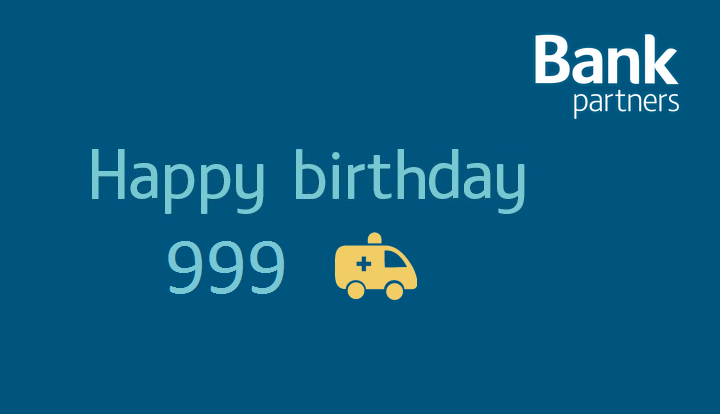Nine things you didn't know about 999

Today, the emergency call number 999 turns 80 years old. This vital service has saved countless lives since it was launched in 1937, and we’re hugely grateful to the amazing men and women who respond to urgent situations. To honour their work, we’ve put together nine facts you may not know about the world's oldest emergency service number...
- Roughly 1,000 calls were made to 999 in its first week. Today the service takes up to 560,000 per week – that’s almost 30 million a year!
- Around half of all 999 calls require the police. Ambulances are the next most requested service, followed by the fire brigade and, least often, the coastguard.
- You can get cave, moorland and quicksand rescue services by calling 999, as well as bomb disposal.
- London was the first city to introduce the 999 service, followed by Glasgow; the service only became available to the whole country in 1976.
- The early hours of New Year's Day are the busiest time of the year for 999 – up to 9,000 calls are received every hour.
- 999 isn’t just for the UK – it’s also used by Bahrain, Bangladesh, Botswana, Ghana, Hong Kong, Kenya, Macau, Malaysia, Mauritius, Qatar, Ireland, Poland, Saudi Arabia, Singapore, Swaziland, Trinidad and Tobago, the United Arab Emirates and Zimbabwe.
- 97% of 999 calls are answered within five seconds.
- The number was chosen based on the 'button A' and 'button B' design of public payphones in widespread use at the time.
- In the UK, 999 and 112 both connect to the same service, and there is no priority or charge for either of them.